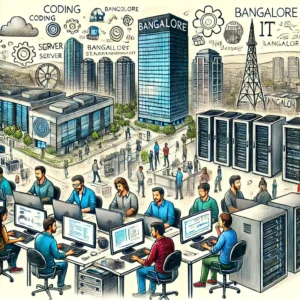What industry should I work in? – Does this question keep you up at night? If so, you have come to right place!
Selecting the right industry to work in can be a challenging decision, with long-lasting consequences. It’s essential to make an informed decision to ensure you’re investing your time and resources into something that aligns with your values, goals, and interests. With so many industries to choose from and factors to consider, it can be overwhelming. However, with a systematic approach and careful consideration, you can make a confident decision that will set you on a path towards success.
In this blog post, we’ll explore how to select the right industry for your career or business. We’ll discuss 18 essential considerations that can help you make an informed decision, with practical examples to illustrate each point. By the end of this article, you’ll have a clear understanding of what to consider when selecting an industry and be better equipped to make a confident decision.
Consideration 1: Your Interests and Passions
Selecting an industry that aligns with your interests and passions is crucial for your long-term success and happiness. When you’re passionate about your work, you’re more likely to be motivated, engaged, and committed to achieving your goals. For instance, if you’re passionate about technology and innovation, you may consider working in the tech industry. On the other hand, if you’re passionate about helping people and making a positive impact, you may consider working in the non-profit or social services sector.
Consideration 2: The Market Demand
The market demand for an industry is a critical consideration when selecting an industry. If an industry is in high demand, you’re more likely to have job security, better salaries, and growth opportunities. Conversely, if an industry is in decline, you may struggle to find employment or face stagnant wages. For example, healthcare and technology are industries that are experiencing high growth and demand. In contrast, industries like print media and brick-and-mortar retail are experiencing a decline.
Consideration 3: Your Skills and Experience
Your skills and experience should also factor into your decision-making process. Consider your strengths and weaknesses, as well as your educational and professional background. You may want to select an industry that aligns with your existing skills and experience to maximize your chances of success. Alternatively, you may consider an industry that allows you to develop new skills and gain experience. For example, if you have a background in finance and accounting, you may consider working in the financial services industry.
Consideration 4: Geographic Location
Geographic location is an important factor to consider when selecting an industry. Some industries are more prominent in specific regions, and you may need to relocate to take advantage of opportunities. For instance, if you’re interested in the film industry, you may need to move to Los Angeles, while if you’re interested in finance, you may need to move to New York City.
Consideration 5: Lifestyle Considerations
Your lifestyle considerations should also factor into your decision-making process. Consider your work-life balance preferences, the level of stress you’re willing to tolerate, and your salary requirements. For example, if you value work-life balance and low-stress environments, you may consider working in the education or government sectors.
Consideration 6: Company Culture
Company culture can have a significant impact on your job satisfaction and success. You may want to select an industry that aligns with your values and provides a positive work environment. For instance, if you value innovation and collaboration, you may consider working in the tech industry.
Consideration 7: Competition
The level of competition in an industry should also be a consideration. Highly competitive industries may make it more challenging to secure employment or achieve success. Conversely, industries with low competition may have fewer job opportunities or limited growth potential. For example, the legal profession is highly competitive, while the construction industry may have lower competition.
Consideration 8: Regulatory Environment
The regulatory environment can impact an industry’s growth and profitability. You should consider the current and potential future regulatory changes in the industry you’re interested in. For example, the renewable energy industry is subject to various regulations related to environmental protection and energy efficiency.
Consideration 9: Economic Conditions
Economic conditions can also have a significant impact on industries’ growth and profitability. Industries that are sensitive to economic conditions, such as construction and manufacturing, may experience fluctuations in demand and employment. On the other hand, industries like healthcare and education are generally less sensitive to economic conditions.
Consideration 10: Technological Advancements
Technological advancements can have a significant impact on an industry’s growth and profitability. You should consider the industry’s technological advancements and how they may affect future job prospects and growth potential. For instance, the rise of artificial intelligence and automation is transforming the manufacturing industry.
Consideration 11: Demographics
Demographics can also impact an industry’s growth and profitability. You should consider the age, gender, and other demographic trends in the industry you’re interested in. For example, the healthcare industry is likely to experience growth due to the aging population.
Consideration 12: Environmental Impact
Environmental impact is an important consideration, particularly for industries that have a significant impact on the environment. You may want to select an industry that aligns with your values and provides sustainable solutions. For instance, the renewable energy industry is focused on providing sustainable energy solutions to combat climate change.
Consideration 13: Networking Opportunities
Networking opportunities can play a critical role in your career success, particularly in industries that value connections and relationships. You should consider the networking opportunities available in the industry you’re interested in and how you can leverage them to advance your career. For example, the finance industry may require extensive networking to secure employment and advance your career.
Consideration 14: Career Advancement Opportunities
Career advancement opportunities should also be a consideration. You should consider the growth potential and promotion opportunities available in the industry you’re interested in. For instance, the healthcare industry offers a wide range of career paths and advancement opportunities, from medical assistants to doctors.
Consideration 15: Personal Branding
Personal branding can impact your job prospects and career success. You should consider how you can leverage your skills, experience, and personal brand to stand out in the industry. For example, if you’re interested in the fashion industry, you may want to develop a personal brand that highlights your creativity and design skills.
Consideration 16: Work Environment
The work environment can also have a significant impact on your job satisfaction and success. You should consider the work environment, including the level of collaboration, communication, and autonomy. For instance, if you value autonomy and independence, you may consider working as a freelancer or starting your own business.
Consideration 17: Industry Trends
Industry trends can provide insight into the future of an industry and the potential growth opportunities. You should consider the current and future industry trends and how they may impact your career prospects. For example, the rise of e-commerce is transforming the retail industry and creating new job opportunities.
Consideration 18: Risks and Challenges
Risks and challenges are inherent in any industry. You should consider the risks and challenges associated with the industry you’re interested in and how you can mitigate them. For example, the healthcare industry has risks associated with exposure to infectious diseases, while the construction industry has risks associated with working at heights.
Conclusion
Selecting the right industry is a critical decision that requires careful consideration. By considering these 18 essential considerations, you can make an informed decision that aligns with your values, goals, and interests. Remember to consider your interests and passions, the market demand, your skills and experience, geographic location, lifestyle considerations
Corporate teams like to work from Work Theater, our coworking space in Bangalore.
Learn more about our coworking space on Think Remote.




